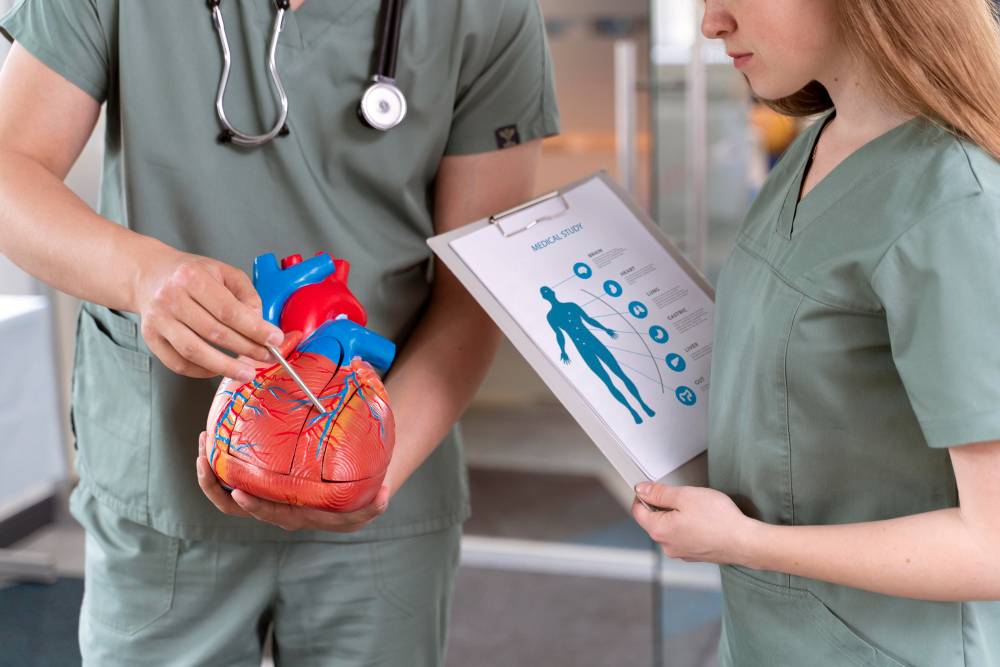Atrial fibrillation causes irregular and rapid heartbeats, and it affects millions of people worldwide. This condition can lead to serious complications if left untreated, such as stroke or heart failure. At Capitol Cardiology Associates, we believe in empowering our patients with knowledge to help them lead healthier lives. Understanding AFib and taking proactive steps to prevent it can improve your heart health and overall well-being. Keep reading to learn about AFib, its causes, and most importantly, the preventative measures and treatment options available.
What Is Atrial Fibrillation?
Atrial fibrillation occurs when the atria, or the heart's upper chambers, experience chaotic electrical signals. This irregularity disrupts the normal rhythm of the heart, causing it to beat out of sync with the lower chambers or ventricles. The result is an irregular or rapid heartbeat that can lead to blood clots, stroke, heart failure, and other heart-related complications. The heart's electrical system is crucial for maintaining a steady and coordinated heartbeat. In AFib, this system malfunctions, leading to disorganized electrical impulses that prevent the atria from contracting properly.
What Triggers Atrial Fibrillation?
Atrial fibrillation can be triggered by various factors, and understanding these can help in its prevention and management. Common causes include:
- Heart-Related Conditions: High blood pressure, heart valve disease, and coronary artery disease are contributors to AFib. These conditions strain the heart and disrupt its normal rhythm.
- Chronic Health Issues: Diabetes, obesity, and thyroid problems can increase the risk of developing AFib. These conditions often lead to inflammation and other changes that affect the heart.
- Lifestyle Factors: Excessive alcohol consumption, smoking, and high caffeine intake can trigger AFib episodes. Stress or lack of physical activity also plays a role in its development.
- Genetics: A family history of AFib can increase your risk.
- Age: The risk of AFib increases with age, particularly after 60. As we age, the heart's structure and function change, making it more prone to irregular rhythms.
Symptoms and Risks of Atrial Fibrillation
Recognizing the symptoms of AFib is crucial for early detection and management. Symptoms can vary but often include:
- Palpitations or a racing, irregular heartbeat
- Weakness or fatigue
- Dizziness or lightheadedness
- Shortness of breath
- Chest pain
Preventing Atrial Fibrillation
Prevention is key to managing AFib and maintaining heart health. Here are some steps you can take:
- Adopt a Heart-Healthy Diet: Eating a balanced, healthy diet can help you maintain a healthy weight, which reduces the risk of heart disease and AFib.
- Exercise Regularly: Physical activity strengthens the heart and improves overall cardiovascular health.
- Manage Chronic Conditions: Keeping conditions like high blood pressure, diabetes, and thyroid problems under control can reduce your risk of AFib.
- Limit Alcohol and Caffeine: Reducing your intake of alcohol and caffeine can help prevent episodes of AFib. Aim for moderation and avoid excessive consumption.
- Quit Smoking: Smoking is a massive risk factor for many heart conditions, including AFib.
- Reduce Stress: Chronic stress can contribute to heart rhythm problems.
How Is Atrial Fibrillation Treated?
If you are diagnosed with AFib, several options are available to help manage the condition and reduce the risk of complications:
- Medications: Various medications can help control your heart rate, rhythm, and prevent blood clots. Your heart doctor or cardiologist will prescribe the best medication based on your specific needs.
- Lifestyle Changes: Adopting a heart-healthy lifestyle, including diet and exercise, can significantly improve your condition and overall heart health.
- Medical Procedures: Procedures such as electrical cardioversion, catheter ablation, or surgical interventions may be necessary to restore normal heart rhythm.
- Monitoring: Regular monitoring of your heart's rhythm and overall health is crucial. Wearable devices and regular check-ups with your cardiologist can help track your condition and make necessary adjustments to your treatment plan.
Are You Searching for a Heart Doctor in Your Community?
If you are experiencing symptoms of AFib or have concerns about your heart health, call Capitol Cardiology Associates. Our team of experienced cardiologists is here to help you every step of the way. We prioritize patient-centered care and utilize the latest advancements in cardiology to ensure the best outcomes for our patients. Contact us today to schedule a consultation.




.webp)

